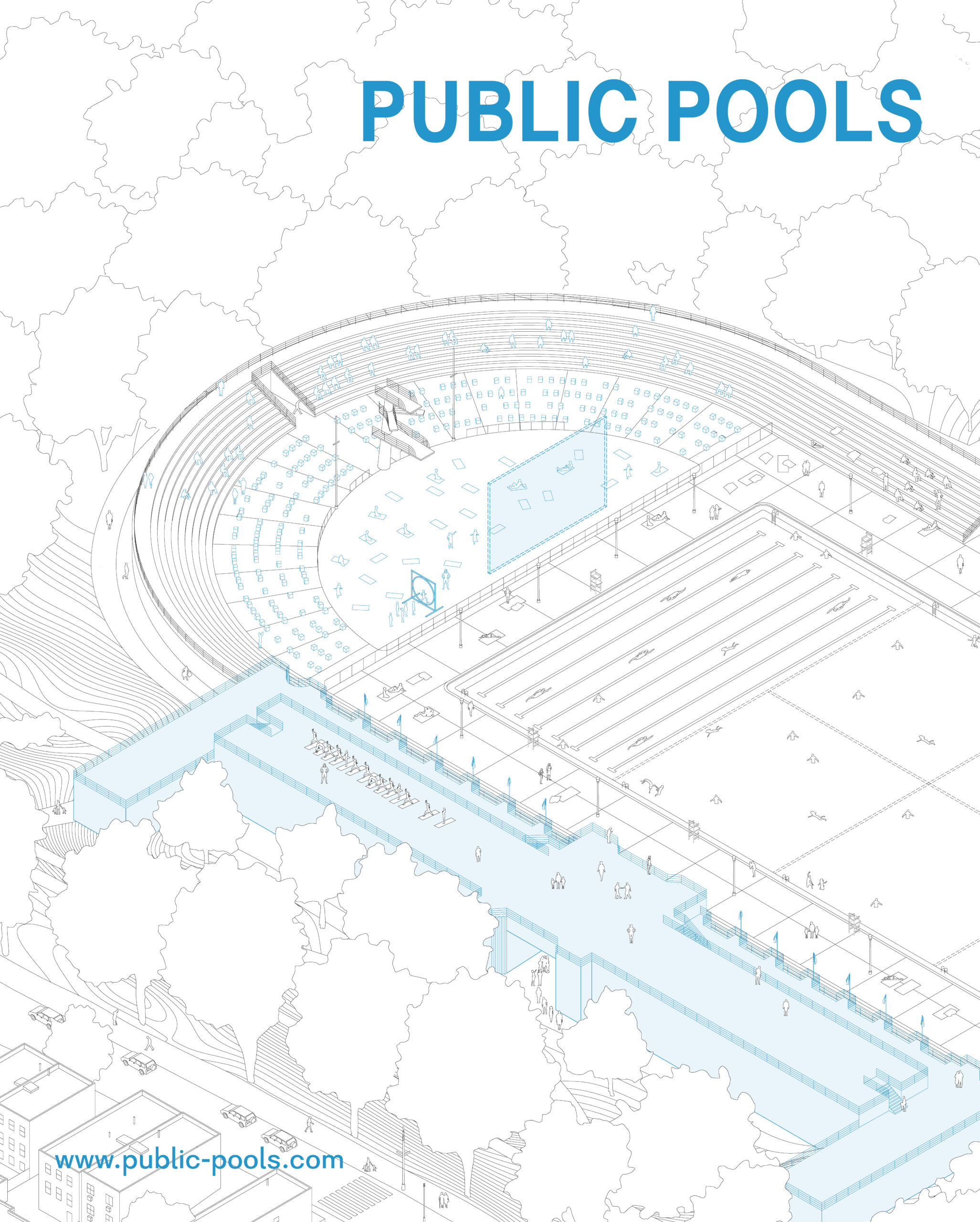PUBLIC POOLS
September 18, 2025 2:00 PM – 3:00 PM
Higgins Hall Auditorium

The lecture will focus on the Public Pools research that explores the history, architectural form, and social and cultural significance of swimming pools in New York City. By studying the history, design and policies around public pools, the project seeks to spark a broader conversation about public space and urban water infrastructure. The swimming pool serves as a lens to investigate larger urban issues, including the impacts of climate change, while also addressing specific concerns such as access to swimming education, cooling infrastructure, and equal access civic gathering spaces. More information can be found on the website: public-pools.com
Karolina Czeczek is an architect and Principal of Only If, a New York City-based design practice for architecture and urbanism, founded in 2013. Only If is a recipient of a Merit Award in the 2025 AIA New York Design Awards and Citation in the 2023 AIA New York State Design Awards, both for the Narrow House project. In the past Only If’s work has been nominated for the Mies Crown Hall Americas Prize (2022) and recognized as part of the Design Vanguard (2022), Domus’s 50 Best Architecture Firms in the World (2020), Next Progressives (2019), and as part of the AIA’s New Practices New York (2018).
Karolina Czeczek is a recipient of a 2023 Architecture + Design Independent Project from the New York State Council on the Arts (NYSCA) and the Architectural League. Her research project, “Public Pools,” explores the rich history, architectural form, and social-cultural significance of New York City’s public swimming pools. The research and related design work has been exhibited at the Citygroup, Museum of Modern Art and A/D/O.
Karolina is a critic at Yale School of Architecture and has previously taught design studios at the University of Pennsylvania, Syracuse University, the University of Kentucky, Pratt Institute, and the University of Cincinnati. Czeczek is a registered architect in the Netherlands and Poland and previously worked at the Office for Metropolitan Architecture (OMA) in Rotterdam and Hong Kong